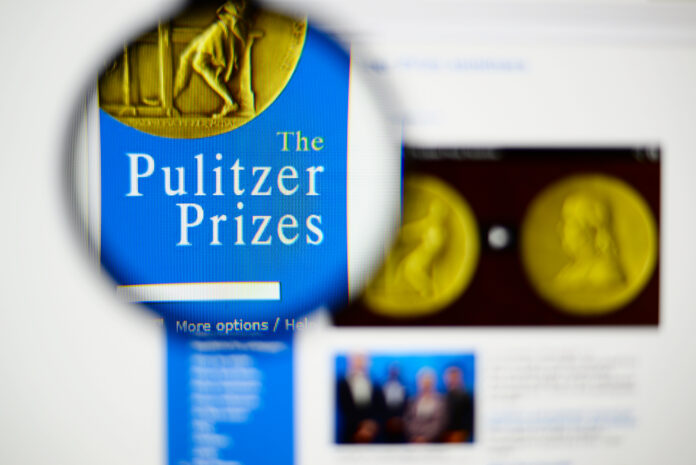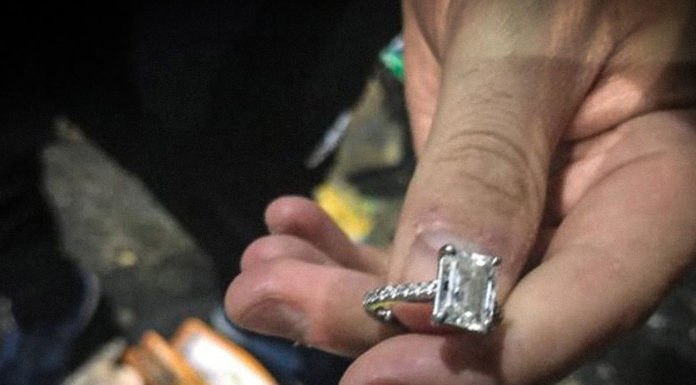It’s unusual—actually, unprecedented —for Agudath Israel of America or any of its affiliates to communicate with the judges who will choose the recipients of the annual Pulitzer Prizes. But KnowUs, the Agudah effort to present a positive, accurate portrayal (and counter negative portrayals) of the charedi community, did just that recently. And, believe it or not, it wasn’t to nominate me for my Ami columns. (Harumpff.)
The letters from KnowUs, 30 pages long with 70 footnotes, represented the determined, tireless, expert work of Agudah chief of staff Avrohom Weinstock. They informed the 18 members of the Pulitzer Prize Board about the serious flaws and demonstrable anti-Orthodox bias that pervaded the past year’s series of New York Times articles about yeshivah education.
There were rumors that one or more of the articles have been nominated for a prize by The Times, which has won 132 Pulitzers since the prize’s inception in 1917. But, KnowUs explained, the yeshivah reportage was rife with misleading data and unsupported insinuations; and the reporters used anti-yeshivah activists as sources without identifying them as such.
That would seem to run far afoul of the Pulitzer Prize requirement that “entries must adhere to the highest journalistic principles…that exemplif[y] the longstanding ethics of the journalistic profession…”
KnowUs wrote that “We believe that awarding these articles, in any way, will be seen not only as a tacit approval and furtherance of offensive, anti-Semitic tropes, but would diminish the standing of the Pulitzer Prize by celebrating articles of demonstrably poor journalistic integrity.”
As it happens, both the Anti-Defamation League and the Jewish Community Relations Council, among others, have decried The Times’ yeshivah coverage.
And, as Ami readers know from the March 29 issue cover story, Judge Christina Ryba of the Supreme Court of New York ruled that the New York State Education Department’s regulations requiring “substantial equivalency” of yeshivah education to what is offered in public schools cannot impose consequences and penalties on noncompliant yeshivos. The judge ruled that “the burden for ensuring a child’s education [rests] squarely on the parent, not the school…”
What readers may not know is how resonant the yeshivah advocates’ position has been in certain circles.
For instance, William McGurn, a member of The Wall Street Journal editorial board, wrote a piece for that newspaper titled “Leave New York’s Yeshivas Alone.” Its subtitle well encapsulates its thesis: “Hasidic Jews don’t need the Times’ input on how to educate their kids.”
An editorial in the New York Sun about the assault on yeshivos offered the state advice in its headline: “Time To Revise New York Law on Compulsory Education.” Its subheader was also right on point: “Why is it the failing public schools to which religious schools need to be substantially equivalent?”
And in City Journal, a public policy magazine published by the Manhattan Institute for Policy Research, senior fellow and director of education policy Ray Domanico penned a lengthy piece, titled “The Battle Over Hasidic Schools Is a Broader Battle.”
In it, Mr. Domanico described his visit to a Crown Heights yeshivah that “offers no instruction in secular subjects,” but whose students “all seemed to be fluent English speakers.” He reported observing “classes in Talmudic studies” and listening to “astoundingly intense lessons [that] were characterized by highly engaged students and teachers.”
“New York State,” he noted, “does not begin to test public school students in English reading comprehension until third grade, yet this Yeshiva expected [all the boys] to be proficient Hebrew readers by the end of first grade. A six- or seven-year-old boy who could crack that language should, I thought, have no problem conquering English.”
He also decried The New York Times’ misleading reportage, called into question the entire concept of “substantial equivalency” and described as “missing from the debate” an “appreciation of the benefits that Hasidic schools produce.”
“Yes,” he conceded, “the Hasidim are different, and their schools reflect that. But their high rates of family stability and low rates of crime suggest that some of these differences are virtuous.”
Pulitzer prize winners are usually announced in late April or May. If there was a category for “Journalism That Sets Things Straight,” awards for Mr. McGurn, the New York Sun and Mr. Domanico would be well in order.
To read more, subscribe to Ami





















